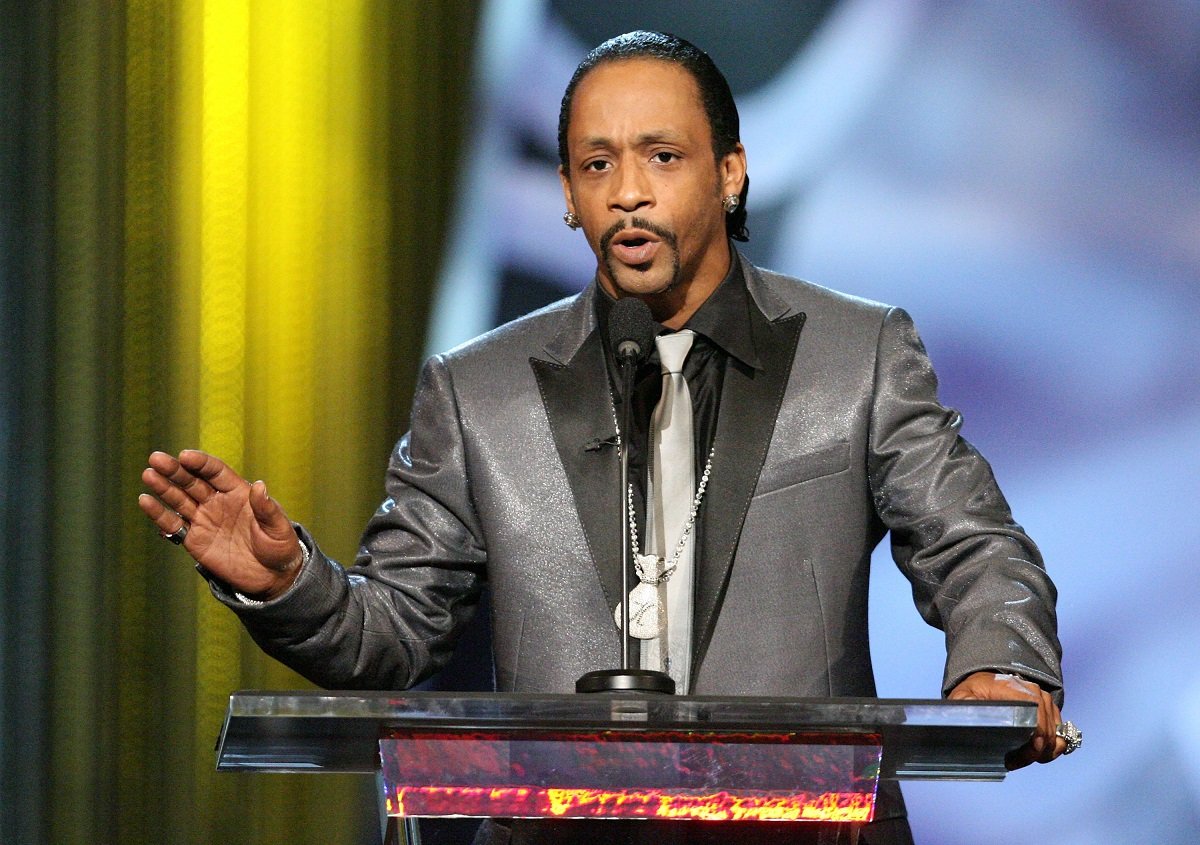Why Katt Williams Changed His Name After Getting His Teeth Knocked Out
Katt Williams wasn’t always Katt Williams. When he first started out, he went under his real name Micah. But the Wild N Out comedian had an accident that resulted in his teeth being knocked out. Embarrassed by this cosmetic mishap, the young Williams changed his act and routine a little in a way to conceal his teeth. This resulted in Williams going through a name change that’s stuck with him his entire career.
Katt Williams got his name by having his teeth knocked out

As some may know, Katt Williams’ real name isn’t actually Katt Williams. He was originally born Micah Sierra Williams. He didn’t go by his stage name Katt Williams until well into his comedy career, and it was a name he picked up because he was missing his teeth. His son, also named Micah, was to blame for his cosmetic injury. While Williams held his son above his head, his son dropped a bottle on him, which knocked out the comedian’s two front teeth.
According to The New Yorker, Williams made up for this by practicing to speak without lifting his upper lip. It was also why he started wearing hats in his comedy. The hats would cast a shadow over his mouth, covering up his teeth. Because of these hats, Williams started referring to himself as the Kat in the hat. This later evolved into simply Katt Williams.
His name isn’t the only thing he’s felt the need to change in his career, however.
‘Friday After Next’ Made Katt Williams a Superstar
Before Friday After Next, Katt Williams was a comic on the rise. But he was still far from the fortune his future fame would award him. He’d travel from city to city working on his material while trying to get his name out there. Even in his younger, less affluent years, Williams recognized the importance of presentation and used it to his advantage. Without a penny to his name, Williams carried himself like a star.
“He thought he was king of the world when he didn’t have a dime and was living in a car,” comedian Luenell said about Williams according to The New Yorker.
Williams’ hustle, work ethic, and talent eventually led him to a comedy club called the Laugh Factory. Here, Williams perfected his persona. The New Yorker even reported that he once came to a comedy club with a manservant to really sell his gimmick. This persona eventually won Williams the Friday After Next role at an audition. Williams’ portrayal as slick, fast-talking pimp Money Mike garnered him massive recognition for his performance.
But despite his success, Williams also found himself in danger of being boxed into the pimp role. Sensing this, Williams took steps to avoid that trap.
How Katt Williams avoided being type cast as the pimp
Williams forged his character carefully enough to where he can be seen as a pimp comedian, without telling pimp jokes to his audience.
“It’s the reason I can be the pimp comedian, and 17 years later I haven’t told a joke about putting a woman on the street, because it was never about that,” Williams told The Virginia-Pilot. “It was about being way different than the norm. I was fortunate that I didn’t have to gimmick it.”
But when Williams noticed there were too many pimp characters being offered to him, it was time to change his act.
“Being a stereotype or pigeonholed is a likely thing to happen anytime you do something well,” Williams said. “In the next five or six years when I’d get all these pimp roles, I had to turn them down because I didn’t want to be stuck anywhere. I was just trying to be the best comedian I could be and to make sure I kept the connection with my fan base. I thought the clearest way to do that was to stay as real and as steady and as honest as I could.”
Williams rejected these roles partly because he wanted his specials to have a meaningful impact on his fans. This would require him to be more than just a comic.
“I just wanted the audience to understand how I was getting from point A to point B, ’cause we’re all in this together,” Williams said. “I’m just trying to make sure I’m saying something other than jokes, that I’m giving something people can use.”


